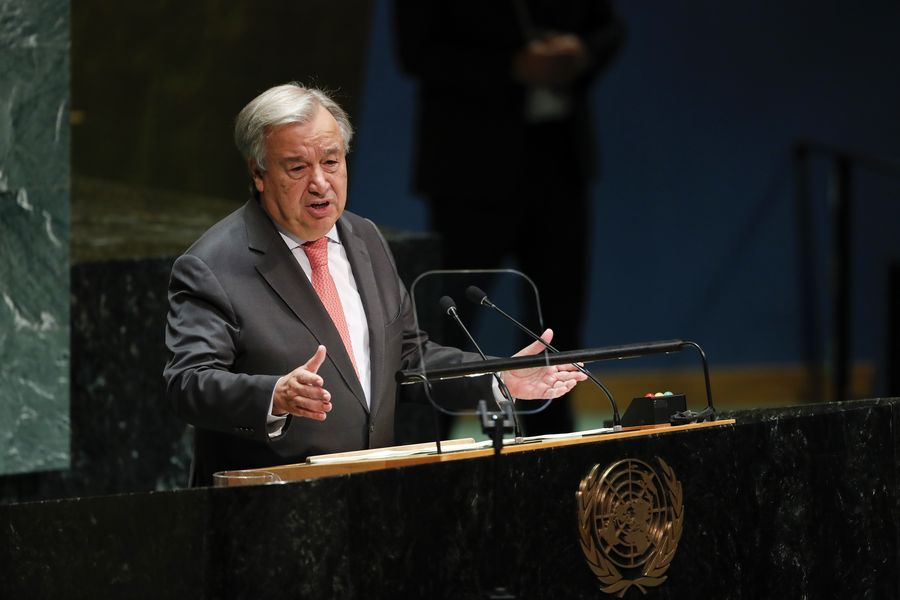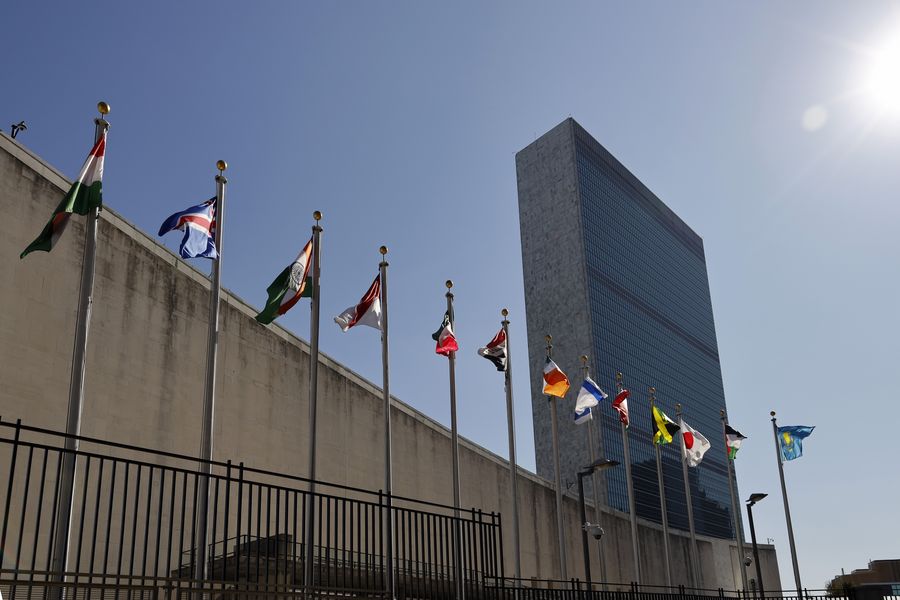
The United Nations (UN) Secretary-General Antonio Guterres addresses the opening of the General Debate of the 74th session of the UN General Assembly at the UN headquarters in New York, Sept. 24, 2019. (Xinhua/Li Muzi)
Headquartered in New York, the UN is largely seen as an "international realm," but delegates from outside of the United States need a U.S. visa to attend its meetings. Under the 1947 Headquarters Agreement, the United States is required to let foreign diplomats enter the country on UN-related business.
However, Russian and Iranian officials traveling to the United States for the 74th session of the UN General Assembly (UNGA74) this year were faced with visa problems.
UNITED NATIONS, Dec. 28 (Xinhua) -- Over the past few months, a number of countries' UN-bound diplomats have suffered visa delays or denials by the U.S. government, for which UN Secretary-General Antonio Guterres voiced his concern recently.
On Thursday, Guterres' spokesperson said the secretary-general "remains very concerned" about delays in the issuance of U.S. visas to multiple member states' officials and academia.
For months, Guterres and the UN Legal Counsel have repeatedly conveyed their concerns as well as the legal position of the United Nations to U.S. senior representatives, according to the spokesperson. "The secretary-general and his team will continue to follow this matter closely."

Photo taken on Oct. 14, 2019 shows the United Nations headquarters in New York. TO GO WITH "Feature: Escalators, fountain stop functioning -- UN tightening belt to tide over financial crisis" (Xinhua/Li Muzi)
Headquartered in New York, the UN is largely seen as an "international realm," but delegates from outside of the United States need a U.S. visa to attend its meetings. Under the 1947 Headquarters Agreement, the United States is required to let foreign diplomats enter the country on UN-related business.
However, Russian and Iranian officials traveling to the United States for the 74th session of the UN General Assembly (UNGA74) this year were faced with visa problems.
Russia said the U.S. government failed to process 18 visas for Russian officials participating in the annual gathering of world leaders, and Washington has deliberately delayed issuing visas to Russian officials traveling to the UN.
Also, doubts were cast over the issuance of visas for Iranian President Hassan Rouhani and Iranian Foreign Minister Mohammad Javad Zarif, both of whom got their visas only days before the UNGA74's high-level events.
On Dec. 18, the UN General Assembly adopted by consensus a resolution calling on the United States as the host country of the world's body headquarters to promptly issue visas to diplomats.
The resolution also requests the secretary-general to remain actively engaged in the matter of relations between the United States and the organization.
According to a Sputnik report, the 18 Russian diplomats, who were denied visas for the UNGA74, were to participate in meetings of the disarmament and legal committees of the General Assembly.
Russia proposed in October to shift the location of the First Committee of the UN General Assembly from New York to Geneva or Vienna in protest of Washington's unfriendly visa policies.
The report of the UN Committee on Relations with the Host Country noted that besides Russia, other countries including China, the Democratic People's Republic of Korea, Iran, Syria and Cuba also complained about the U.S. visa policy. ■



